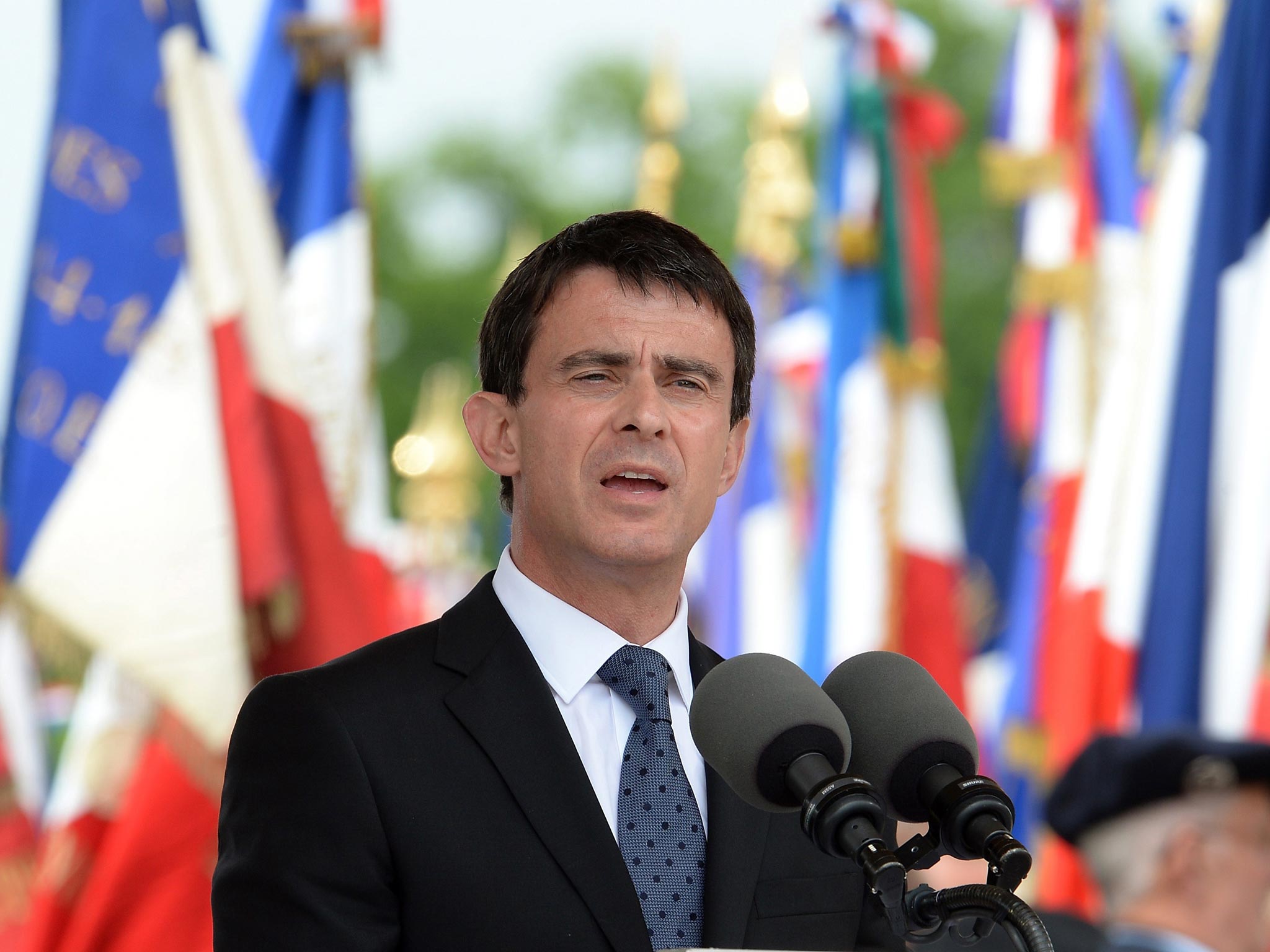French Prime Minister Manuel Valls resigns – and takes entire government with him over austerity row with economy minister Arnaud Montebourg
The dramatic resignation of Mr Valls was an attempt to re-assert the authority of the Prime Minister and President

The French Prime Minister Manuel Valls resigned today after only five months in office but will form a new government tomorrow excluding a senior minister who attacked his economic policy at the weekend.
The dramatic resignation of Mr Valls was an attempt to re-assert the authority of the Prime Minister and President François Hollande in the face of the most serious government crisis of the Hollande presidency.
The left-wing Economy Minister, Arnaud Montebourg, made outspoken attacks at the weekend on the deficit-slashing policies of France and the Eurozone which he blamed on the German Chancellor, Angela Merkel. His opinion is shared by at least 50 parliamentary members of the ruling Socialist party and was supported on Sunday by the education minister, Benoît Hamon.
After a one-hour crisis meeting with Mr Valls this morning, Mr Hollande announced that he had asked Mr Valls “to form a new team with is consistent with policy directions he has defined for the country”. The new government is almost certain to exclude Mr Montebourg.
It is not clear whether other senior ministers who have called for a change in economic policy - including Mr Hamon and the justice minister Christiane Taubira - will also be fired.
In an interview and a speech at the weekend, Mr Montebourg, one of the two ministers who manage French economic policy, attacked the “forced march” of rapid deficit-cutting within the Eurozone and blamed the German Chancellor . He said that the policy was an “economic aberration” imposed by Ms Merkel’s “right-wing dogma” which was “throwing Europe into the arms of extremist parties which want to destroy Europe”.
Mr Valls and Mr Hollande have already let it be known that they would seek a further softening of the Eurozone budget deficit rules next month. The Prime Minister was due to travel to Berlin with Mr Montebourg to make France’s case. President Hollande is believed to have decided that the vituperative language against Ms Merkel used by Mr Monebourg at the weekend had made it impossible for him to stay in the government.
France is in the midst of severe budget cuts of €50bn over three years to meet a Eurozone-wide target of a deficit of 4 per cent of GDP by the end of this year and 3 per cent by 2017. Mr Montebourg says the sharp cuts are plunging continental Europe back into recession and are counter-productive.
France faces zero growth this year and a fall in tax revenues which mean that, despite the painful cuts, it will almost certainly fail to meet its 4 per cent deficit target.
In a long interview with Le Monde at the weekend, Mr Montebourg called on France to take a “hard line” against Ms Merkel. He accused her of imposing the “extreme policies of the Germam right” on the whole of Europe with disastrous consequencs.
“In a time of world-wide recovery, the only Kafkaesque island of resistance is the Eurozone,” he said. “Leaders of the Euro-using countries stubbornly persist in policies which block growth and prevent a reduction in unemployment.”
“The forced march of deficit-cutting is an economic aberration because it increases joblessness. It is a financial absurdity because it makes it impossible to restore the health of public budgets. And it is a political calamity because it throws Europe into the arms of extremist parties who want to destroy Europe.”
This was not just his diagnosis, he said. It was shared by “financial institutions of the whole world”.
Join our commenting forum
Join thought-provoking conversations, follow other Independent readers and see their replies
0Comments